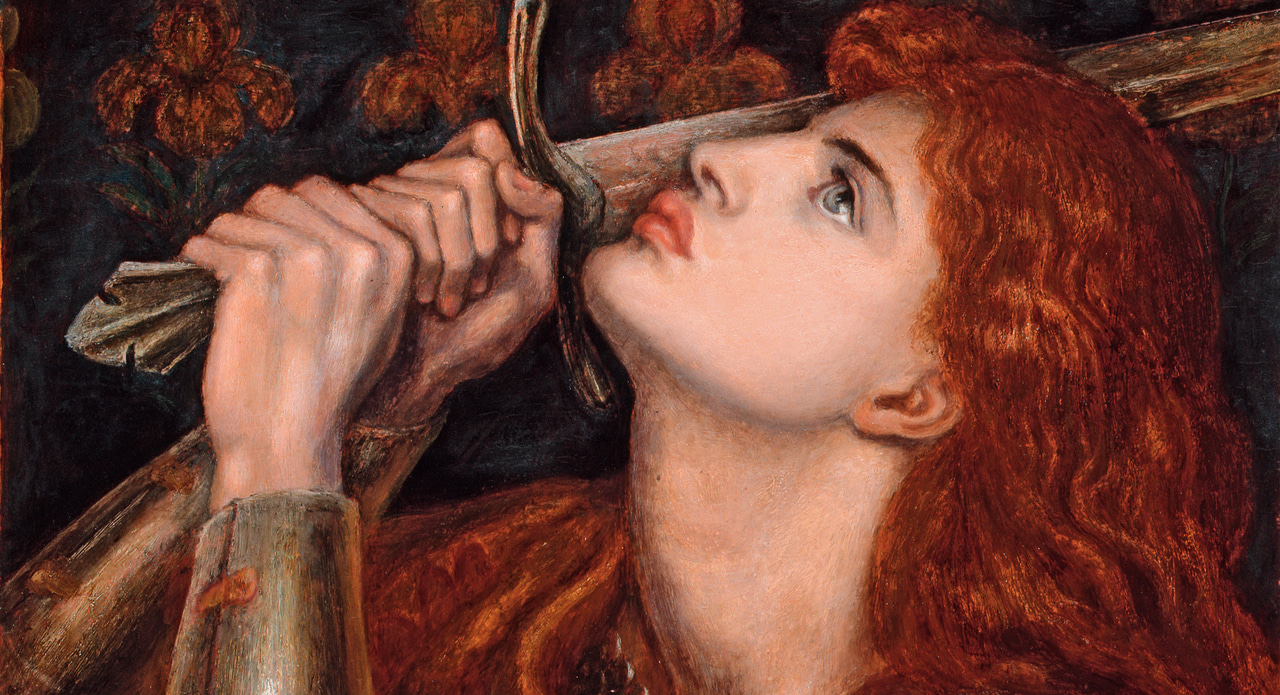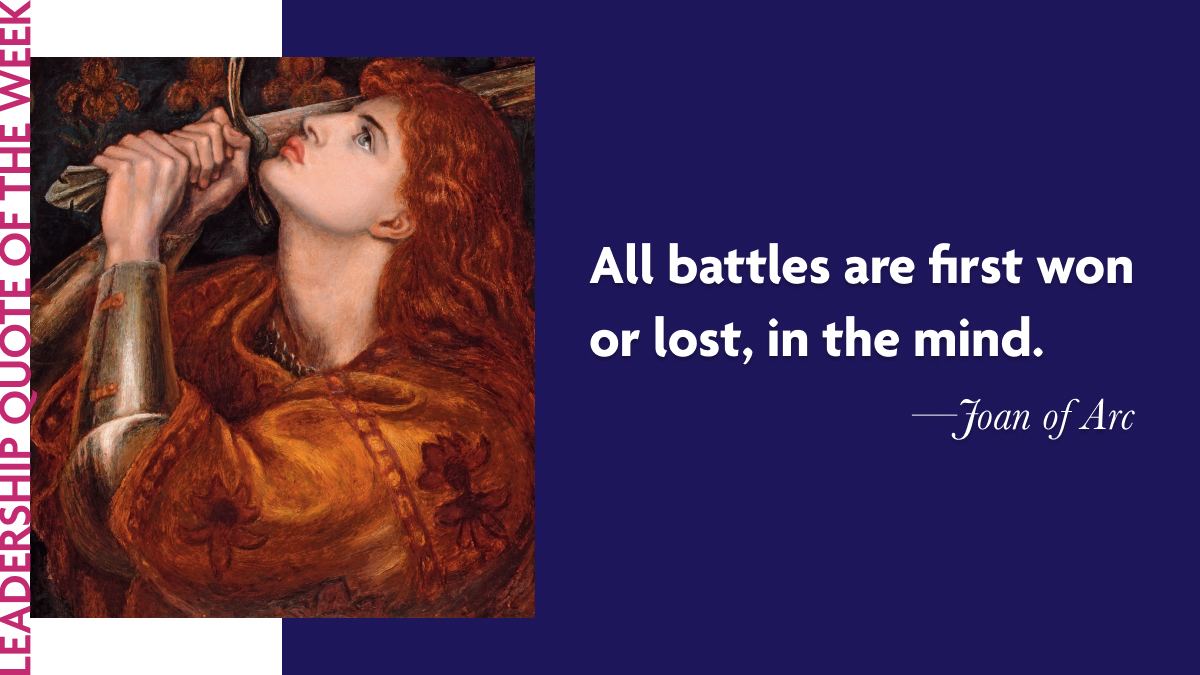All Battles Are First Won or Lost, in the Mind


Image Credit: Dante Gabriel Rossetti, Public domain, via Wikimedia Commons
Joan of Arc (1412-1431) is a heroine of France for her role in leading the siege of Orléans during the Hundred Years' War.
Born into a peasant family in northeast France, she travelled to Vaucouleurs in 1428 and requested to see the dauphin Charles, later testifying that the voices of saints directed her to support Charles and recover France from English domination. Her request was rejected twice, but she finally met Charles in 1429, after which Charles sent Joan, who was about 17 years old, to the siege of Orléans as part of a relief army.
In Orléans she quickly gained prominence during the fighting and ended the siege nine days after her arrival. Joan participated in the Loire Campaign, which culminated in the decisive defeat of the English at the Battle of Patay. The French army advanced on Reims and entered the city on 16 July. The next day, at the urging of Joan, Charles was coronated as the King of France. These victories boosted French morale and paved the way for the final French victory in the Hundred Years' War in 1453.
In 1430, Joan was captured by Burgundian troops and sold to the English, who convicted her of heresy and burned her at the stake. After her death, the conviction was overturned and she was later canonized by the Roman Catholic Church and became a national symbol of France. She was canonized in 1920, and declared a secondary patron saint of France in 1922.





Please sign in
If you are a registered user on Laidlaw Scholars Network, please sign in